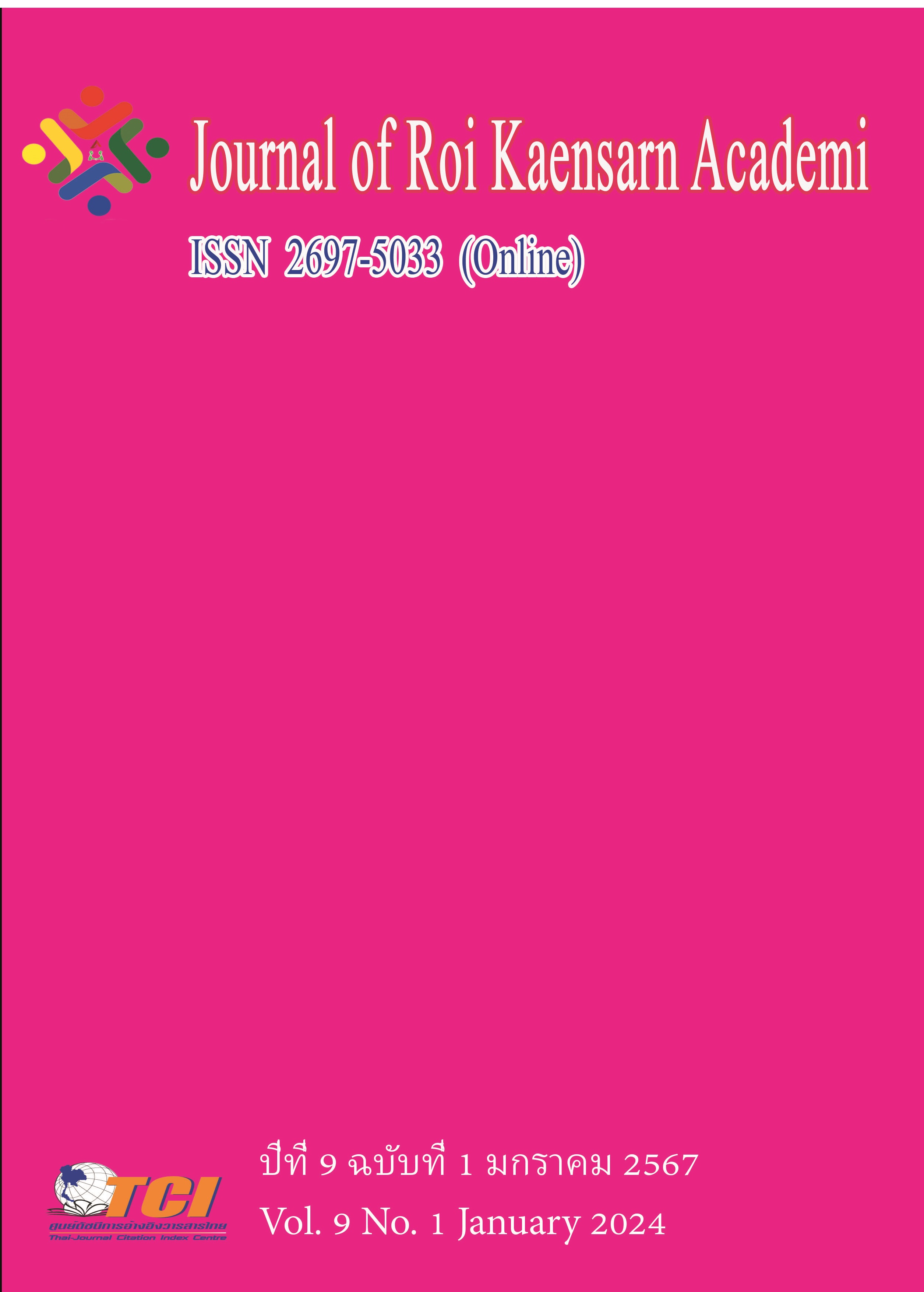ประเด็นคัดสรรว่าด้วยคุณลักษณะและทักษะของผู้นำ
Main Article Content
บทคัดย่อ
บทความนี้มุ่งนําเสนอประเด็นคัดสรรว่าด้วยคุณลักษณะและทักษะของผู้นำ โดยมีวัตถุประสงค์ เพื่อสร้างความเข้าใจในด้านคุณลักษณะและทักษะของผู้นำ ทั้งนี้ จากการศึกษาค้นคว้าด้านผู้นําที่อยู่ ในภาคธุรกิจหรือทางสังคมจะช่วยให้มองเห็นความสําคัญของภาวะผู้นําที่มีต่อความสําเร็จขององค์การได้ชัดเจนขึ้น ตลอดจนเข้าใจถึงปัญหาอุปสรรคและความท้าทายต่าง ๆ ของการเป็นผู้นํา ช่วยให้สามารถค้นพบความสามารถด้านภาวะผู้นําของตนเองซึ่งไม่เคยทราบมาก่อน รวมทั้งใช้คุณลักษณะและทักษะของผู้นำ ได้อย่างเหมาะสม นอกจากนี้ แม้ผู้ที่ไม่ต้องการเป็นผู้นําก็ตามภาวะผู้นําก็สามารถสร้างความเข้าใจต่อการเป็นผู้นําของคนอื่นและช่วยให้ตนสามารถกําหนดบทบาทในการเป็นผู้ตามที่ดี สร้างประโยชน์ให้แก่องค์การ ได้อย่างมีประสิทธิภาพและประสิทธิผล
Article Details
เอกสารอ้างอิง
Argyris, C. (1991). “Teaching smart people how to learn.” Harvard Business Review, (3),
-18.
Bass, B.M. (1990). Bass & Stogdill’s Handbook of leadership. ( ed.), New York : Free Press.
Bass, B.M. (1990). “From transactional to transformational leadership : Learnng to share
the vision”, Oeganizational Dynamics. 18 : 19-31.
Bass, B.M. (1990). Handbook of leadership : A survey of theory and research. New York : Free Press.
Boyatzis, R.E. (1982). The competent manager. New York : John Wiley.
Conger, J.A. (1998). Leadership to lead : The art of transforming managers into leadera. San Francisco : Jossey-Bass.
Goleman, D., et. Al. (2002). The New Leaders. UK : Time Werner Books.
Faculty of Management. (1997). Principles of management. Chiang Mai : Payap University.
Howard, A. & Bray D.w. (1988). Management lives in transition : Advancing age and changing Times. New York : Gullford Press.
Hunt, J.G. (1991). Leadership : A new synthesis. Newbury Park, CA : Sage.
Jacobs, T.O. & Jaques, E. (1987). “Leadership in complex systems.” In J. Zeidner. (Ed.), Human Productivity : Organizations, Personnel, and Decision Marking Vol. 2, 7 - 65.
Katz, D. & Kahn, R.L. (1978). The social psychology of organization. ed., New York : John Wiley.
thingsdone in organizations. San Francisco : Jossey-Bass.
Kotter, J.P. (1982). The general managers. New York : Free Press.
Litwin, G.H. & Stringer, P.A. (1966). Motivation and organizational climate. Boston : Division of Research Harvard Business School.
Lord, R.G. & Maher, K.J. (1991). Leadership and information processing : Linking perceptions and performance. Boston : Unwin-Hyman.
McClelland, D.C. (1975). Human motivation. Glenview, IL : Scott Fresman.
McClelland, D.C. & Boyatzis, R.E. (1982). “Leadership motive pattern and lond term
success in management.” Journal of Applied Psychology, 67, 737-743.
McClelland, D.C. & Burnhan, D.H. (1976). “Power is the great motiator.” Harvard Business Review, March-April, 100-110.
Miller, D. & Toulouse, J. (1986). “Chief executive personalityvand cooperate strategy and structure in small firms.” Management Science, 32, 1389 - 1409.
Miner, J.B. (1985). “Sentence completion measures in personnel research : the
development and validation of the miner sentence completion scales,” In
H.J.Bernadin, & D.A. Bownas. (Eds.), Personality assessment in organizations. 145 -
Moorhead, G, & Griffin, R.W. (1995). Organizational behavior. ( ed.) Boston, MA : Houghton Miflin.
Quinn, J.B. (1992). The intelligent enterprise. New York : The Free Press.
Rotter, J.B. (1966) Generalized Expectancies for Internal versus External Control of
Reinforcement. Psychological Monographs, 80, 1-28.
Shetty, Y.K. & Peery, N.S. (1976). “Are top executives transferable across companies ?.” Business Horizons. 19 (3), 23 - 28.
Van Velsor, E. & Leslic, J.B. (1995). “Why executives derail : Perspective across time and cultures.” Academy of Management Executive, 9 (4), 62 - 72.
Yukl, G. (1998). Leadership in organizations. ( ed.), Englewood Cliffs, NJ : Prentice Hall.

